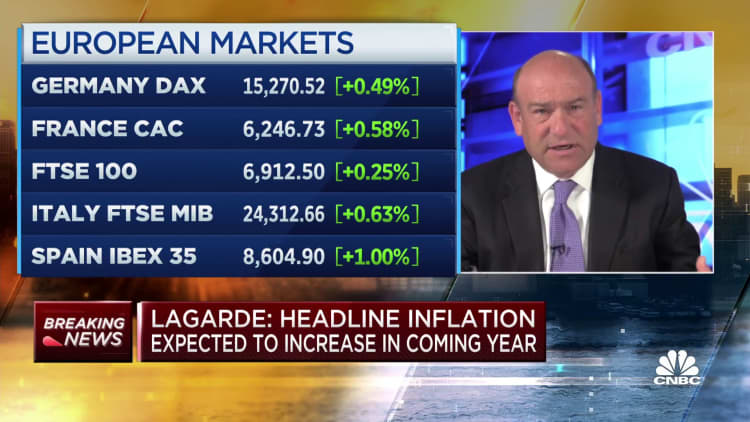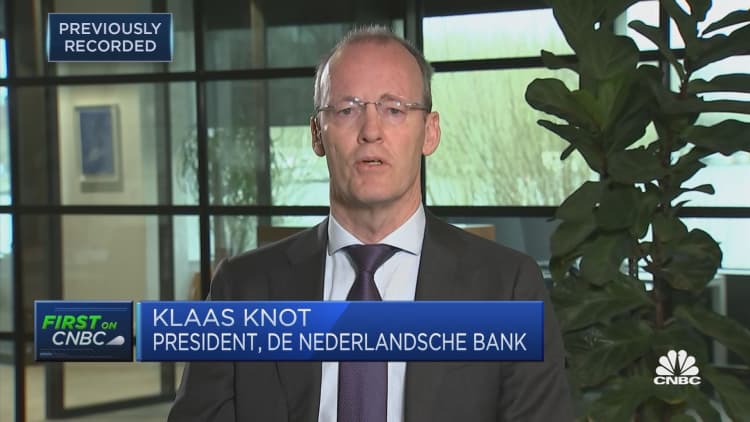
LONDON — The European Central Bank decided on Thursday to keep its policy unchanged while market players look for clues on when its massive monetary stimulus might start to be wound down.
"Preserving favorable financing conditions over the pandemic period remains essential to reduce uncertainty and bolster confidence, thereby underpinning economic activity and safeguarding medium-term price stability," ECB President Lagarde said at a press conference on Thursday.
The central bank said last month it was going to increase government bond purchases — though still within the planned envelope of 1.85 trillion euros ($2.2 trillion) until March 2022 — to address rising bond yields in the euro zone. At the time, the ECB expressed concerns with borrowing costs rising sharply for euro area governments before the economy has fully recovered from the coronavirus shock.
As a result, data from Deutsche Bank showed the ECB purchased 74 billion euros in bonds in March, up from 53 billion and 60 billion euros in February and January.
"The Governing Council expects purchases under the PEPP over the current quarter to continue to be conducted at a significantly higher pace than during the first months of the year," the ECB said on Thursday, suggesting it will keep buying more bonds in the coming months in comparison to the first few months of the year.
The ECB's loose monetary policy stance is aimed at supporting the 19 euro area economies as they battle with the coronavirus shock. Many European nations have been forced to return to strict lockdowns after a third wave of infections over the Easter period, and there is a lot of uncertainty for the coming months.
"Incoming economic data, surveys and high-frequency indicators suggest that economic activity may have contracted again in the first quarter of this year, but point to a resumption of growth in the second quarter," Lagarde told reporters. She added, however, that there is an "overall environment of uncertainty" regarding the economic outlook.
Eyes on June
Market players are keenly anticipating the June meeting, the next in the ECB's calendar, as the next key moment for monetary stimulus in the euro zone.
Hawkish ECB members are hoping that, as vaccination rates rise and economies slowly reopen, they can start talks on when to ease stimulus. However, this will be dependent on how the pandemic and respective vaccination programs play out.
Speaking Thursday, Lagarde said there hadn't been discussions so far on a possible phasing out of stimulus, as it was "simply premature."

The ECB signaled on Thursday that it will all depend on how financing conditions evolve.
"The envelope can be recalibrated if required to maintain favorable financing conditions to help counter the negative pandemic shock to the path of inflation," the ECB said in a statement.
The ECB's policy mandate is to keep inflation close but below 2%. Current forecasts estimate that inflation will peak 2% in the last quarter of 2021, but to come down throughout 2022.
Market reaction was muted after the announcement, as it met analysts' expectations of no further action.
The ECB forecast in March a GDP (gross domestic product) rate for 2021 of 4%, and of 4.1% for 2022.


